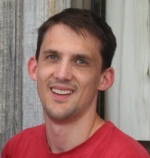News Archive
When does a problem have a solution?
21 Apr 2009 - 13:32 in Event
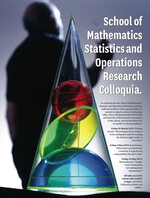 Hot on the heels of the first of the MSOR School Colloquium Talks - Richard Arnold 's talk on earthquakes and his election night forecasting, which attracted a large audience - comes the second colloquium talk, this time by Rod Downey. Rod's talk, "When does a problem have a solution: A logician and computability theorist's view", is aimed at a very general audience, and will be accessible to beginning graduate or even advanced undergraduate students.
The talk will be given in the Cotton Club (CO339) at 4pm on Friday May 8th, with refreshments to follow. For more information about the MSOR Research Colloquia, visit http://msor.victoria.ac.nz/Main/MSORColloquia, or click on the link on the left side of this page. A short description of Rod's talk is given below:
Much of mathematics is devoted to giving solutions to equations, calculating solutions to problems, classifying structures according to invariants and the like. Natural questions arise as to when this is not possible. This talk looks at questions such as this tracing, in a idiosyncratic way, a historical line leading to modern incarnations wherein logic allows us to show that no invariants are possible for (e.g.) certain problems in group theory. This is done by showing that normal mathematical structures can be caused to emulate computation in faithful ways.
Hot on the heels of the first of the MSOR School Colloquium Talks - Richard Arnold 's talk on earthquakes and his election night forecasting, which attracted a large audience - comes the second colloquium talk, this time by Rod Downey. Rod's talk, "When does a problem have a solution: A logician and computability theorist's view", is aimed at a very general audience, and will be accessible to beginning graduate or even advanced undergraduate students.
The talk will be given in the Cotton Club (CO339) at 4pm on Friday May 8th, with refreshments to follow. For more information about the MSOR Research Colloquia, visit http://msor.victoria.ac.nz/Main/MSORColloquia, or click on the link on the left side of this page. A short description of Rod's talk is given below:
Much of mathematics is devoted to giving solutions to equations, calculating solutions to problems, classifying structures according to invariants and the like. Natural questions arise as to when this is not possible. This talk looks at questions such as this tracing, in a idiosyncratic way, a historical line leading to modern incarnations wherein logic allows us to show that no invariants are possible for (e.g.) certain problems in group theory. This is done by showing that normal mathematical structures can be caused to emulate computation in faithful ways.
What will the wasp plague be like this year?
31 Jan 2017 - 15:25 in Interesting
New research from Victoria University of Wellington has revealed the population of the common wasp is amplified by spring weather, with warmer and drier springs often meaning more wasps and wasp stings in summer.
The study, published today in the Journal of Animal Ecology, examined 23 years of data from New Zealand and 39 years from the United Kingdom, which included the annual Rothamsted Insect Survey.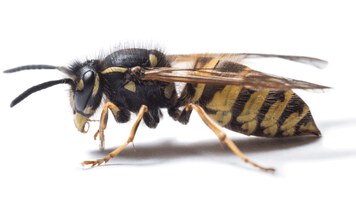 “We saw different populations exposed to different weather conditions, which substantially influenced population numbers. The patterns typically show lower numbers of wasps after cold, wet springs, and higher numbers after warm, dry springs,” says lead author Professor Phil Lester from Victoria’s School of Biological Sciences.
“This year we’ve had a really wet spring in many areas across New Zealand. These places that have seen a lot of spring rainfall could expect lower numbers of wasps than average this summer.”
Professor Lester says climate change could considerably increase wasp numbers.
“The average global temperature is rising each year. We are therefore likely to see more wasp abundance in the future as our weather gets warmer.
“We saw this at Rothamsted in the United Kingdom. The area experienced a change in climate in the 1990s, and its warmer spring weather has resulted in considerably higher numbers of wasps.”
The study also found population densities for the upcoming year are heavily dependent on numbers from the previous year.
“If we saw a high abundance of wasps in one year, numbers are likely to be lower in the following year,” explains co-author Dr John Haywood from Victoria’s School of Mathematics and Statistics.
“This is a relatively common way that insect populations change over time. We also determined that wasp populations don’t ‘cycle’—we can’t predict the abundance of wasps three, four or more years from now based on their current numbers. There is no predictable rise and fall of numbers over the long term.”
The invasive common wasp is a native species in the United Kingdom and became established in New Zealand in the 1970s. The insect is a major pest in both countries—in New Zealand it has been estimated to cost the economy in excess of $130 million each year.
Other authors on the study are Dr Michael Archer from York and Chris Shortall from Rothamsted Research, both in the United Kingdom.
The study was supported by the Marsden Fund managed by the Royal Society of New Zealand, as well as New Zealand’s Biological Heritage National Science Challenge, for which Professor Lester leads research into novel pest control technologies.
For more information contact Professor Phil Lester on 021 243 5096 or phil.lester@vuw.ac.nz .
“We saw different populations exposed to different weather conditions, which substantially influenced population numbers. The patterns typically show lower numbers of wasps after cold, wet springs, and higher numbers after warm, dry springs,” says lead author Professor Phil Lester from Victoria’s School of Biological Sciences.
“This year we’ve had a really wet spring in many areas across New Zealand. These places that have seen a lot of spring rainfall could expect lower numbers of wasps than average this summer.”
Professor Lester says climate change could considerably increase wasp numbers.
“The average global temperature is rising each year. We are therefore likely to see more wasp abundance in the future as our weather gets warmer.
“We saw this at Rothamsted in the United Kingdom. The area experienced a change in climate in the 1990s, and its warmer spring weather has resulted in considerably higher numbers of wasps.”
The study also found population densities for the upcoming year are heavily dependent on numbers from the previous year.
“If we saw a high abundance of wasps in one year, numbers are likely to be lower in the following year,” explains co-author Dr John Haywood from Victoria’s School of Mathematics and Statistics.
“This is a relatively common way that insect populations change over time. We also determined that wasp populations don’t ‘cycle’—we can’t predict the abundance of wasps three, four or more years from now based on their current numbers. There is no predictable rise and fall of numbers over the long term.”
The invasive common wasp is a native species in the United Kingdom and became established in New Zealand in the 1970s. The insect is a major pest in both countries—in New Zealand it has been estimated to cost the economy in excess of $130 million each year.
Other authors on the study are Dr Michael Archer from York and Chris Shortall from Rothamsted Research, both in the United Kingdom.
The study was supported by the Marsden Fund managed by the Royal Society of New Zealand, as well as New Zealand’s Biological Heritage National Science Challenge, for which Professor Lester leads research into novel pest control technologies.
For more information contact Professor Phil Lester on 021 243 5096 or phil.lester@vuw.ac.nz .
 “We saw different populations exposed to different weather conditions, which substantially influenced population numbers. The patterns typically show lower numbers of wasps after cold, wet springs, and higher numbers after warm, dry springs,” says lead author Professor Phil Lester from Victoria’s School of Biological Sciences.
“This year we’ve had a really wet spring in many areas across New Zealand. These places that have seen a lot of spring rainfall could expect lower numbers of wasps than average this summer.”
Professor Lester says climate change could considerably increase wasp numbers.
“The average global temperature is rising each year. We are therefore likely to see more wasp abundance in the future as our weather gets warmer.
“We saw this at Rothamsted in the United Kingdom. The area experienced a change in climate in the 1990s, and its warmer spring weather has resulted in considerably higher numbers of wasps.”
The study also found population densities for the upcoming year are heavily dependent on numbers from the previous year.
“If we saw a high abundance of wasps in one year, numbers are likely to be lower in the following year,” explains co-author Dr John Haywood from Victoria’s School of Mathematics and Statistics.
“This is a relatively common way that insect populations change over time. We also determined that wasp populations don’t ‘cycle’—we can’t predict the abundance of wasps three, four or more years from now based on their current numbers. There is no predictable rise and fall of numbers over the long term.”
The invasive common wasp is a native species in the United Kingdom and became established in New Zealand in the 1970s. The insect is a major pest in both countries—in New Zealand it has been estimated to cost the economy in excess of $130 million each year.
Other authors on the study are Dr Michael Archer from York and Chris Shortall from Rothamsted Research, both in the United Kingdom.
The study was supported by the Marsden Fund managed by the Royal Society of New Zealand, as well as New Zealand’s Biological Heritage National Science Challenge, for which Professor Lester leads research into novel pest control technologies.
For more information contact Professor Phil Lester on 021 243 5096 or phil.lester@vuw.ac.nz .
“We saw different populations exposed to different weather conditions, which substantially influenced population numbers. The patterns typically show lower numbers of wasps after cold, wet springs, and higher numbers after warm, dry springs,” says lead author Professor Phil Lester from Victoria’s School of Biological Sciences.
“This year we’ve had a really wet spring in many areas across New Zealand. These places that have seen a lot of spring rainfall could expect lower numbers of wasps than average this summer.”
Professor Lester says climate change could considerably increase wasp numbers.
“The average global temperature is rising each year. We are therefore likely to see more wasp abundance in the future as our weather gets warmer.
“We saw this at Rothamsted in the United Kingdom. The area experienced a change in climate in the 1990s, and its warmer spring weather has resulted in considerably higher numbers of wasps.”
The study also found population densities for the upcoming year are heavily dependent on numbers from the previous year.
“If we saw a high abundance of wasps in one year, numbers are likely to be lower in the following year,” explains co-author Dr John Haywood from Victoria’s School of Mathematics and Statistics.
“This is a relatively common way that insect populations change over time. We also determined that wasp populations don’t ‘cycle’—we can’t predict the abundance of wasps three, four or more years from now based on their current numbers. There is no predictable rise and fall of numbers over the long term.”
The invasive common wasp is a native species in the United Kingdom and became established in New Zealand in the 1970s. The insect is a major pest in both countries—in New Zealand it has been estimated to cost the economy in excess of $130 million each year.
Other authors on the study are Dr Michael Archer from York and Chris Shortall from Rothamsted Research, both in the United Kingdom.
The study was supported by the Marsden Fund managed by the Royal Society of New Zealand, as well as New Zealand’s Biological Heritage National Science Challenge, for which Professor Lester leads research into novel pest control technologies.
For more information contact Professor Phil Lester on 021 243 5096 or phil.lester@vuw.ac.nz .
What does detecting gravitational waves mean?
15 Feb 2016 - 15:58 in Research
On 15 February 2016 two of Victoria's astrophysics researchers presented a seminar about the first direct observation of gravitational waves from the merger of two black holes.
The first ever direct observation of gravitational waves from the merger of two black holes was announced by researchers at the LIGO Scientific Collaboration. Their 20 year search for gravitational waves—ripples in the fabric of space-time—confirms a prediction of Albert Einstein’s theory of general relativity just over a century ago.
So what exactly does this big breakthrough mean? Victoria’s Professor Matt Visser, a world-leading expert in general relativity, and Associate Professor Melanie Johnston-Hollitt, an internationally prominent radio astronomer, shared their insights on how it was discovered, what it means, and the future of astrophysics.
Professor Visser’s research looks at the areas of general relativity, quantum field theory, and theoretical cosmology, and Associate Professor Johnston-Hollitt is co-author on the paper describing the electromagnetic follow-up observations of the gravitational wave source.
You can see the presentation here: https://youtu.be/cbVmoGsQuko
Welcome to Eleni Matechou
18 Jan 2011 - 13:34 in Staff
Welcome to Dr Eleni Matechou who is joining us for the year to work with Professor Shirley Pledger and Dr Richard Arnold and to take part in some of our Applied Statistics teaching. Eleni recently completed her PhD at the University of Kent at Canterbury in the UK.
Welcome to Dr Petros Hadjicostas
31 Aug 2011 - 12:30 in Staff
Welcome to Dr Petros Hadjicostas who has joined the staff. Dr Hadjicostas is a mathematical statistician with a PhD from Carnegie Mellon and was recently on staff at the Texas Tech University.
Victoria student gets ticket to Cambridge
17 Apr 2013 - 10:40 in Achievement
Victoria student gets ticket to Cambridge
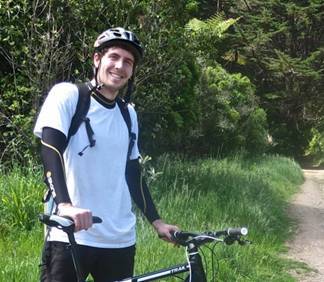 A Victoria University student is the only New Zealander this year to be awarded a Gates Cambridge Scholarship, to study at a postgraduate level at the University of Cambridge.
Wellingtonian Felix Barber, who is graduating in May with a Bachelor of Science with First Class Honours (majoring in Mathematics and Physics), was one of 51 students from 24 countries to be awarded the Gates Scholarship, which will allow him to study for his Master’s in Applied Mathematics. Globally, more than 3,500 students applied for the scholarships, which assess intellectual ability, leadership capacity, academic fit with Cambridge and the applicant’s commitment to improving the lives of others.
Barber’s award comes after recent success with the William Georgetti Scholarship, which awarded him $180,000 over three years to support the PhD study he hopes to begin at Cambridge after his Master’s degree. The William Georgetti Scholarship is aimed at encouraging postgraduate study and research in a field that is important to the social, cultural or economic development of New Zealand.
“It’s exciting to be awarded these two scholarships and I am very grateful,” says Barber. “I am keen to take full advantage of any opportunities that come my way in the UK to do interesting and exciting work, so that I can one day give back to New Zealand.”
Barber, who originally planned a career as a journalist before realising he was “actually quite good at physics”, plans to focus on research into condensed matter physics or biophysics.
“I want to expand my knowledge base into these areas because I think they will allow me to do work that will have the greatest impact on the lives of others. My hope for the future is to produce research in a dynamic area of physics that can have a positive impact on serious world issues, such as the development of technologies to facilitate sustainable human existence.”
Outside of study, Barber sings in the Wellington Youth Choir, is a keen mountain biker and is learning Spanish. He was also responsible for co-founding the Victoria University Science Society to provide both a social and academic focus for students in the wider science community.
A Victoria University student is the only New Zealander this year to be awarded a Gates Cambridge Scholarship, to study at a postgraduate level at the University of Cambridge.
Wellingtonian Felix Barber, who is graduating in May with a Bachelor of Science with First Class Honours (majoring in Mathematics and Physics), was one of 51 students from 24 countries to be awarded the Gates Scholarship, which will allow him to study for his Master’s in Applied Mathematics. Globally, more than 3,500 students applied for the scholarships, which assess intellectual ability, leadership capacity, academic fit with Cambridge and the applicant’s commitment to improving the lives of others.
Barber’s award comes after recent success with the William Georgetti Scholarship, which awarded him $180,000 over three years to support the PhD study he hopes to begin at Cambridge after his Master’s degree. The William Georgetti Scholarship is aimed at encouraging postgraduate study and research in a field that is important to the social, cultural or economic development of New Zealand.
“It’s exciting to be awarded these two scholarships and I am very grateful,” says Barber. “I am keen to take full advantage of any opportunities that come my way in the UK to do interesting and exciting work, so that I can one day give back to New Zealand.”
Barber, who originally planned a career as a journalist before realising he was “actually quite good at physics”, plans to focus on research into condensed matter physics or biophysics.
“I want to expand my knowledge base into these areas because I think they will allow me to do work that will have the greatest impact on the lives of others. My hope for the future is to produce research in a dynamic area of physics that can have a positive impact on serious world issues, such as the development of technologies to facilitate sustainable human existence.”
Outside of study, Barber sings in the Wellington Youth Choir, is a keen mountain biker and is learning Spanish. He was also responsible for co-founding the Victoria University Science Society to provide both a social and academic focus for students in the wider science community.
Victoria student awarded prestigious Woolf Fisher scholarship
07 Oct 2016 - 11:47 in Achievement
A Victoria University of Wellington student has been awarded a prestigious Woolf Fisher Trust scholarship worth around $300,000 for his doctoral study at the University of Cambridge.
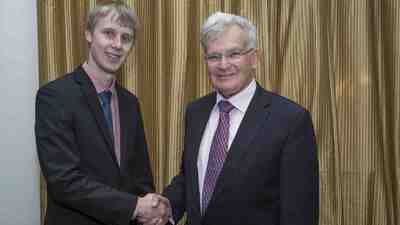 Honours student Liam Jolliffe will travel to Cambridge in the United Kingdom to study for a PhD in Pure Mathematics and Mathematical Statistics.
Sir Woolf Fisher (1912-1975), co-founder of Fisher and Paykel, set up his Trust in 1960 to recognise and reward excellence in education. The Scholarship selects young New Zealanders based on their outstanding academic ability, leadership potential as well as their integrity, vision and capacity for work.
Liam studied at Wairarapa College before coming to Victoria to complete a Bachelor of Science in Mathematics and Physics.
In his time at Victoria he has won numerous awards for academic excellence, including the Geoffrey A Rowan Memorial Bursary prize awarded to the best 300-level mathematics student, the Pablo Etchegoin Prize in Experimental Physics, and a Victoria Graduate Award in 2015.
Liam, a keen footballer and saxophonist, says he sees his future in academia.
“I will complete a Master of Advanced Studies at Cambridge, before transitioning to the PhD programme.
“I chose my degree at Victoria with no particular path in mind—I was just following my curiosity as I wanted to learn more about how the world works. Now, I see my future career in academia. Research will ensure I am challenged and engaged in interesting new material, and teaching will allow me to pass on my love for mathematics. I hope to return to Wellington and Victoria University later in my career.”
Liam has been studying algebraic matroids in his Honours research project, says Dr Dillon Mayhew from Victoria's School of Mathematics and Statistics.
"This area of mathematics is notoriously difficult to grasp, but Liam has quite quickly clarified the connections between two different ways of viewing these objects. No doubt his study at Cambridge will be equally successful."
Sir Noel Robinson, Chairman of the Woolf Fisher Trust, says, “We are delighted that we have had such a strong field shortlisted for this year’s scholarships. They each bring a range of strengths and research interests. And most importantly, they embody the characteristics envisaged by Sir Woolf when he established the scholarship. We will follow their progress with great pride and great interest.”
Honours student Liam Jolliffe will travel to Cambridge in the United Kingdom to study for a PhD in Pure Mathematics and Mathematical Statistics.
Sir Woolf Fisher (1912-1975), co-founder of Fisher and Paykel, set up his Trust in 1960 to recognise and reward excellence in education. The Scholarship selects young New Zealanders based on their outstanding academic ability, leadership potential as well as their integrity, vision and capacity for work.
Liam studied at Wairarapa College before coming to Victoria to complete a Bachelor of Science in Mathematics and Physics.
In his time at Victoria he has won numerous awards for academic excellence, including the Geoffrey A Rowan Memorial Bursary prize awarded to the best 300-level mathematics student, the Pablo Etchegoin Prize in Experimental Physics, and a Victoria Graduate Award in 2015.
Liam, a keen footballer and saxophonist, says he sees his future in academia.
“I will complete a Master of Advanced Studies at Cambridge, before transitioning to the PhD programme.
“I chose my degree at Victoria with no particular path in mind—I was just following my curiosity as I wanted to learn more about how the world works. Now, I see my future career in academia. Research will ensure I am challenged and engaged in interesting new material, and teaching will allow me to pass on my love for mathematics. I hope to return to Wellington and Victoria University later in my career.”
Liam has been studying algebraic matroids in his Honours research project, says Dr Dillon Mayhew from Victoria's School of Mathematics and Statistics.
"This area of mathematics is notoriously difficult to grasp, but Liam has quite quickly clarified the connections between two different ways of viewing these objects. No doubt his study at Cambridge will be equally successful."
Sir Noel Robinson, Chairman of the Woolf Fisher Trust, says, “We are delighted that we have had such a strong field shortlisted for this year’s scholarships. They each bring a range of strengths and research interests. And most importantly, they embody the characteristics envisaged by Sir Woolf when he established the scholarship. We will follow their progress with great pride and great interest.”
 Honours student Liam Jolliffe will travel to Cambridge in the United Kingdom to study for a PhD in Pure Mathematics and Mathematical Statistics.
Sir Woolf Fisher (1912-1975), co-founder of Fisher and Paykel, set up his Trust in 1960 to recognise and reward excellence in education. The Scholarship selects young New Zealanders based on their outstanding academic ability, leadership potential as well as their integrity, vision and capacity for work.
Liam studied at Wairarapa College before coming to Victoria to complete a Bachelor of Science in Mathematics and Physics.
In his time at Victoria he has won numerous awards for academic excellence, including the Geoffrey A Rowan Memorial Bursary prize awarded to the best 300-level mathematics student, the Pablo Etchegoin Prize in Experimental Physics, and a Victoria Graduate Award in 2015.
Liam, a keen footballer and saxophonist, says he sees his future in academia.
“I will complete a Master of Advanced Studies at Cambridge, before transitioning to the PhD programme.
“I chose my degree at Victoria with no particular path in mind—I was just following my curiosity as I wanted to learn more about how the world works. Now, I see my future career in academia. Research will ensure I am challenged and engaged in interesting new material, and teaching will allow me to pass on my love for mathematics. I hope to return to Wellington and Victoria University later in my career.”
Liam has been studying algebraic matroids in his Honours research project, says Dr Dillon Mayhew from Victoria's School of Mathematics and Statistics.
"This area of mathematics is notoriously difficult to grasp, but Liam has quite quickly clarified the connections between two different ways of viewing these objects. No doubt his study at Cambridge will be equally successful."
Sir Noel Robinson, Chairman of the Woolf Fisher Trust, says, “We are delighted that we have had such a strong field shortlisted for this year’s scholarships. They each bring a range of strengths and research interests. And most importantly, they embody the characteristics envisaged by Sir Woolf when he established the scholarship. We will follow their progress with great pride and great interest.”
Honours student Liam Jolliffe will travel to Cambridge in the United Kingdom to study for a PhD in Pure Mathematics and Mathematical Statistics.
Sir Woolf Fisher (1912-1975), co-founder of Fisher and Paykel, set up his Trust in 1960 to recognise and reward excellence in education. The Scholarship selects young New Zealanders based on their outstanding academic ability, leadership potential as well as their integrity, vision and capacity for work.
Liam studied at Wairarapa College before coming to Victoria to complete a Bachelor of Science in Mathematics and Physics.
In his time at Victoria he has won numerous awards for academic excellence, including the Geoffrey A Rowan Memorial Bursary prize awarded to the best 300-level mathematics student, the Pablo Etchegoin Prize in Experimental Physics, and a Victoria Graduate Award in 2015.
Liam, a keen footballer and saxophonist, says he sees his future in academia.
“I will complete a Master of Advanced Studies at Cambridge, before transitioning to the PhD programme.
“I chose my degree at Victoria with no particular path in mind—I was just following my curiosity as I wanted to learn more about how the world works. Now, I see my future career in academia. Research will ensure I am challenged and engaged in interesting new material, and teaching will allow me to pass on my love for mathematics. I hope to return to Wellington and Victoria University later in my career.”
Liam has been studying algebraic matroids in his Honours research project, says Dr Dillon Mayhew from Victoria's School of Mathematics and Statistics.
"This area of mathematics is notoriously difficult to grasp, but Liam has quite quickly clarified the connections between two different ways of viewing these objects. No doubt his study at Cambridge will be equally successful."
Sir Noel Robinson, Chairman of the Woolf Fisher Trust, says, “We are delighted that we have had such a strong field shortlisted for this year’s scholarships. They each bring a range of strengths and research interests. And most importantly, they embody the characteristics envisaged by Sir Woolf when he established the scholarship. We will follow their progress with great pride and great interest.”
Victoria’s new degree to fill gap across multiple industries
29 Jan 2016 - 11:01 in Achievement
The first group of students from Victoria University of Wellington has successfully completed the country’s only university course in actuarial science.
The University’s Head of the School of Mathematics and Statistics Dr Peter Donelan says actuarial science is entering a new era beyond assessing life and financial risk as governments and businesses grapple with social investment and the effects of climate change.
The new undergraduate programme offered at Victoria is in response to the growing need for professionals who can analyse, measure and manage risk, he says.
“We live in a world where we are increasingly conscious of risk, whether from natural hazards such as earthquakes and storms, personal factors relating to health, disease and lifestyle, or uncertainty in financial markets, investments and asset management.
“There’s a growing demand for actuarial skills, not just across the traditional fields of insurance and finance, but in areas such as government, education, health and software development,” he says.
The actuarial science major, available in both the Bachelor of Commerce and Bachelor of Science degrees, encompasses a range of papers across economics, finance, mathematics, statistics and the actuarial science paper in the students’ final year.
Seven students completed the paper that ran for the first time throughout the second half of 2015.
To mark the occasion, a special ceremony was held last week where two promising actuarial science students, Ross Engelbrecht and Juanying (Jenny) Hu, were each awarded $2,500 prizes for outstanding academic merit.
The prizes were established in conjunction with ACC, Wellington’s largest employer of actuaries, in honour of ACC’s head actuary and Victoria alumnus Jonathan Nicholls who passed away in 2015.
Professor Bob Buckle, Pro Vice-Chancellor and Dean of Commerce, says the programme has been thoughtfully designed with extensive industry input.
“The New Zealand Society of Actuaries and individuals in the industry have lent their expertise to help shape the programme so it instils students with the right mix of skills, theory and practical experience.”
“One of the other great things about the programme is it provides opportunities for students to connect directly with leading members of the profession and from there, develop links with potential employers,” he says.
For more information contact Dr Peter Donelan on 04-463 5659 or peter.donelan@vuw.ac.nz
Victoria Researcher Scoop Science Awards
28 Jan 2014 - 11:18 in Achievement
Victoria researchers scoop science awards
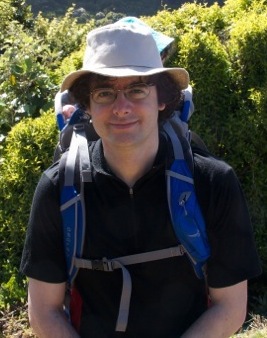 Victoria University researchers Dr Noam Greenberg and Dr Simon Lamb have scooped New Zealand Association of Scientists (NZAS) awards for their contribution to science.
Dr Greenberg, an Associate Professor in Victoria’s School of Mathematics, Statistics and Operations Research, is the recipient of the 2013 Research Medal, awarded for outstanding research published by a scientist under the age of 40.
Dr Greenberg works on the mathematics of computability, carrying out research which sheds light on the fundamental capabilities and limitations of the algorithms used by modern computers and software.
The international quality of his research has been recognised by the award of a Rutherford Discovery Fellowship from the Royal Society of New Zealand in 2011, and a Turing Research Fellowship from the United States-based John Templeton Foundation in 2012.
Dr Simon Lamb, an Associate Professor in the School of Geography, Environment and Earth Sciences is the recipient of the 2013 Science Communicators Award for excellence in communicating science to the general public.
Dr Lamb has a sustained record of high impact communication of the science of climate change. He is the maker of Thin Ice, a documentary on climate change released in April last year that has since been viewed more than 50,000 times. He has also written several books and made television programmes and films which have reached large global audiences. His book, The Devil and the Mountain, which describes his own research into the formation of the Andes, was named on the New York Times Book Review’s list of 100 Notable Books for 2004.
The Awards will be presented at the 2014 Annual Conference of the NZAS, which takes place in Auckland on Saturday 5 April.
Victoria University researchers Dr Noam Greenberg and Dr Simon Lamb have scooped New Zealand Association of Scientists (NZAS) awards for their contribution to science.
Dr Greenberg, an Associate Professor in Victoria’s School of Mathematics, Statistics and Operations Research, is the recipient of the 2013 Research Medal, awarded for outstanding research published by a scientist under the age of 40.
Dr Greenberg works on the mathematics of computability, carrying out research which sheds light on the fundamental capabilities and limitations of the algorithms used by modern computers and software.
The international quality of his research has been recognised by the award of a Rutherford Discovery Fellowship from the Royal Society of New Zealand in 2011, and a Turing Research Fellowship from the United States-based John Templeton Foundation in 2012.
Dr Simon Lamb, an Associate Professor in the School of Geography, Environment and Earth Sciences is the recipient of the 2013 Science Communicators Award for excellence in communicating science to the general public.
Dr Lamb has a sustained record of high impact communication of the science of climate change. He is the maker of Thin Ice, a documentary on climate change released in April last year that has since been viewed more than 50,000 times. He has also written several books and made television programmes and films which have reached large global audiences. His book, The Devil and the Mountain, which describes his own research into the formation of the Andes, was named on the New York Times Book Review’s list of 100 Notable Books for 2004.
The Awards will be presented at the 2014 Annual Conference of the NZAS, which takes place in Auckland on Saturday 5 April.
VUW student wins Sacks Prize
26 Mar 2012 - 15:25 in Achievement
The Sacks Prize for the best PhD thesis in logic worldwide in 2011 has been won by Dr Adam Day who completed his PhD in "Randomness and Computability" with the School in 2011 under the supervision of Professor Rod Downey. It is the first time this prize has been won outside of France, Toronto and the US. It is recognition of the logic group at VUW, and of Adam's thesis. Adam is currently in receipt of a Miller Fellowship at the University of California at Berkeley and also won the Royal Society's Hatherton Prize last year for the best paper in physical, earth or maths and information sciences by a New Zealand university PhD student. Our congratulations to Adam!
